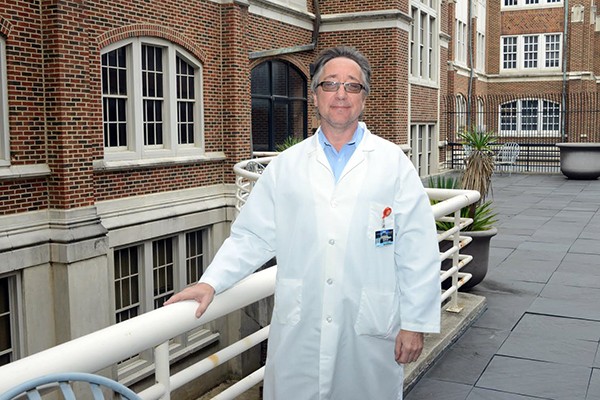Anyone jump-starting a big night out, getting turnt, or straightening up a sloppy drunk may have turned to an energy drink cocktail (Red Bull and vodka anyone?) for help.
But a local researcher thinks that’s a bad idea. And he just got a $100,000 grant from the federal government to try to prove it.
For the next two years, Dr. Alex Dopico will study the effects of consuming alcohol and caffeine together. Rats and mice will get drunk in his lab, and Dopico will observe and measure how their brains react to various levels of caffeine.
 University of Tennessee Health Science Center
University of Tennessee Health Science Center
Dr. Alex Dopico
So, what’s the big deal with drinking alcohol and caffeine together?
The Centers for Disease Control and Prevention (CDC) said the stimulant effects of caffeine can mask the depressant effects of alcohol. But caffeine doesn’t actually slow the metabolism of alcohol in the liver. So, an energy drink cocktail can make you feel less drunk even while you’re getting drunker.
That opens the door to even more drinking. The CDC says those who drink energy-drink cocktails are three times more likely to binge drink than those who don’t. Binge drinkers are almost twice as likely to report being taken advantage of sexually, taking advantage of someone sexually, or riding with a driver under the influence, the CDC says.
In 2010, alcoholic energy drinks like Four Loko, Joose, and Max were on the shelves. In November of that year, the U.S. Food and Drug Administration said the drinks posed “a public health concern” that could lead to “life-threatening situations.” The Federal Trade Commission noted that consumers might have believed the products were safe because they were sold widely.
The drinks were taken off the shelves by mid-December. But Dopcio said the trend of drinking alcohol and caffeine together is still a problem, and it’s reaching “epidemic proportions in the U.S., particularly on college campuses.”
Many studies have examined drinking alcohol and caffeine together. Most of those studies have identified and defined the drinkers: Who is more likely to drink these drinks? What are their behaviors and habits as they drink?
Dopico is interested in physiological science, and he’ll be looking at the ways alcohol and caffeine interact with arteries in the brain. Specifically, he’ll target the molecules and mechanisms in the brain that govern caffeine’s unique interaction with alcohol when the two are sipped, pounded, or shot together.
“We hope that understanding how brain arteries react to caffeine and alcohol when they are consumed together will help to inform public policy about their risky co-consumption,” Dopico said.
He’s studied the effect of alcohol on the brain for the past 20 years and is a professor at the University of Tennessee Health Science Center in Memphis, where he’s also the chair of the Department of Pharmacology. He got the grant to study caffeine with alcohol last week from the National Institute on Alcohol Abuse and Alcoholism.
Dopico received a $3.6 million grant from the NIAAA in 2009 to support 10 years’ worth of his alcohol studies in Memphis. He hopes to develop drugs that control the changes in the body and behavior that come with getting drunk.